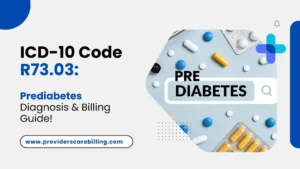In the world of healthcare administration, two vital components often mentioned in the same breath are medical billing and medical coding. While both play crucial roles in the financial health of healthcare providers, they serve distinct purposes in the overall process. In this article, we’ll unravel the differences between medical billing and medical coding, shedding light on their unique functions and contributions to the healthcare system.
Medical Coding: The Language of Healthcare Procedures and Diagnoses
What is Medical Coding?
Medical coding is essentially the translation of healthcare services, procedures, and diagnoses into universally recognized alphanumeric codes. These codes serve as a standardized language for communication between healthcare providers and insurance payers. The primary code sets used are CPT (Current Procedural Terminology), ICD-10 (International Classification of Diseases), and HCPCS (Healthcare Common Procedure Coding System).
The Role of Medical Coders:
Medical coders, trained professionals in the field, meticulously review medical records and translate the provided information into the appropriate codes. Their accuracy is paramount, as these codes determine the amount of reimbursement a healthcare provider receives for the services rendered. Precision in medical coding is essential for preventing claim denials and ensuring compliance with industry standards.
Medical Billing: Navigating the Financial Landscape of Healthcare
What is Medical Billing?
Medical billing, on the other hand, involves the submission and management of claims for the services provided by healthcare professionals. It is the process through which healthcare providers request payment from insurance companies or patients for the healthcare services delivered.
The Role of Medical Billers:
Medical billers play a pivotal role in the revenue cycle. They take the coded information from medical coders and use it to create detailed claims, including patient information, procedural codes, and associated costs. These claims are then submitted to insurance payers for reimbursement. Medical billers also handle tasks such as verifying insurance coverage, following up on unpaid claims, and managing patient billing inquiries.
Key Differences:
- Focus of Responsibility:
- Medical Coding: Focuses on translating healthcare services into standardized codes.
- Medical Billing: Focuses on creating and submitting claims for reimbursement.
- Skill Sets:
- Medical Coding: Requires in-depth knowledge of anatomy, medical terminology, and coding systems.
- Medical Billing: Requires an understanding of insurance policies, billing procedures, and financial management.
- Nature of Work:
- Medical Coding: Involves reviewing medical records and assigning appropriate codes.
- Medical Billing: Involves creating claims, submitting them, and managing the billing process.
- Outcome:
- Medical Coding: Produces coded records that serve as the basis for medical billing.
- Medical Billing: Results in the generation of claims seeking reimbursement for healthcare services.
The Synergy Between Medical Coding and Billing:
While distinct, medical coding and billing are interconnected stages in the revenue cycle. Accurate coding is paramount for successful billing. The collaboration between skilled coders and billers ensures a seamless process that optimizes reimbursement and minimizes errors.
How Providers Care Billing LLC Streamlines Medical Billing and Coding:
Navigating the complexities of medical billing and coding demands expertise and precision. Providers Care Billing LLC – a top notch medical billing company stands as a reliable partner in this journey. Our experienced team of certified coders and billers is committed to ensuring accuracy in coding and efficiency in the billing process.




